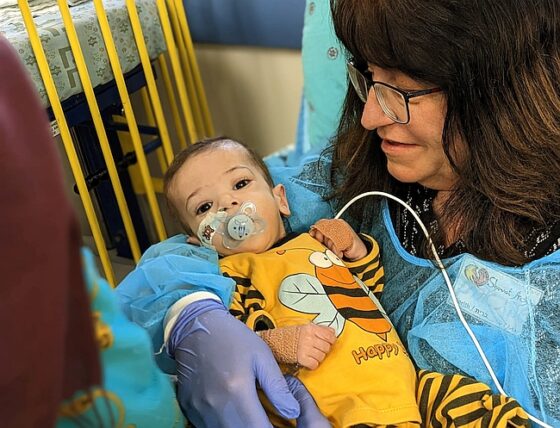
Shevet Achim was founded on the belief that every child deserves equal access to quality medical care, regardless of the geopolitical situation of their home country. In their mission to bridge the gap faced by families in the Middle East, the organization coordinates travel and care for children with congenital heart conditions to receive advanced care by top medical facilities and experts in Israel.
Shevet Achim continues to save children’s lives by funding heart surgeries and offering critical treatment and resources they otherwise would not have access to. For the families, Shevet Achim is the hero they needed most.
Rimini Street is joined by Jonathan Miles, Shevet Achim’s Internal Coordinator, who serves as the coordinator and support to two of the organization’s volunteer communities in Israel and the United States.
Rimini Street Foundation: Thank you for taking the time to speak with us today. Would you please share with our readers Shevet Achim’s mission and highlights of your organization’s work?
Jonathan: We believe that human rights are ultimately based on the fundamental principle that has been passed down through ancient history, which states that all humans are created in the image of God.
The doctors we work with in Israel have this message engrained in their DNA. They honor and care for every child regardless of their background. And this is such a healing message for a region which, for the most part, has difficulty accessing quality medical care or even an affordable option.
Rimini Street Foundation: Since its inception in 1994, what challenges has your organization faced, and how did you overcome them?
Jonathan: Due to the shifting political climate in 1995, many children in the Gaza Strip were left vulnerable without access to the medical centers in Israel. Heart surgeon, Dr. Ami Cohen, started a charity called “Save a Child’s Heart” for non-Israeli children in the Middle East and Africa, arranging for them to be brought to Israel to receive treatment. As soon as I heard this, I called him and asked, “What about the children in Gaza?”
“Those are exactly the children we want to reach with our program,” Dr. Cohen replied, “but we have been having difficulties reaching out to people in that area.”
I realized then that our charity, formed by foreign Christian volunteers — outsiders to Israel — had a special advantage. We could go into Gaza, build trust and relationships with the communities there, and aid in transporting children to Israel for medical treatment. This has continued without interruption up to the present. In 2003, a similar breakthrough occurred which allowed children in need of medical treatment to be transported from Iraq, and again in 2012, the door opened to bring refugees from Syria.
Rimini Street Foundation: Are there — if any — misconceptions about your organization?
Jonathan: I don’t think we’re well known enough for anyone to have misconceptions about our organization, specifically. I do think that many have misconceptions about the attitude of Israel toward its neighbors, specifically that Israel might deny them access to medical care. We’ve seen over many years that Israel is willing — always — to allow entrance for life-and-death medical cases, even during difficult times.
Rimini Street Foundation: How have changes in medical care accessibility changed and reshaped Shevet Achim’s work?
Jonathan: Our work has at every stage, been a response to the shifting conditions which have left children vulnerable without access to adequate medical care. The fundamental question for us is, “Can we, with good conscience, enjoy our own access to excellent medical care, and look away while our neighbors’ children are dying?”
Rimini Street Foundation: Has the work of Shevet Achim helped bridge stronger relationships between Israel and the communities served?
Jonathan: This is something that is hard to measure, but every community in Gaza and northern Iraq knows well that Israel has opened its arms to help their children; and Israel’s aid during the Syrian civil war has also become widely known.
Rimini Street Foundation: Can you share your favorite Shevet Achim story with us?
Jonathan: When the first Iraqi child came to Israel in 2003, via a series of miracles, we were able to capture the whole story on video. I’d suggest watching this to fully understand our and this child’s story.
Rimini Street is a proud financial supporter of Shevet Achim’s mission of equal access to quality, life-saving medical treatment. If you would like more information about their work and how you can help, visit their website.
